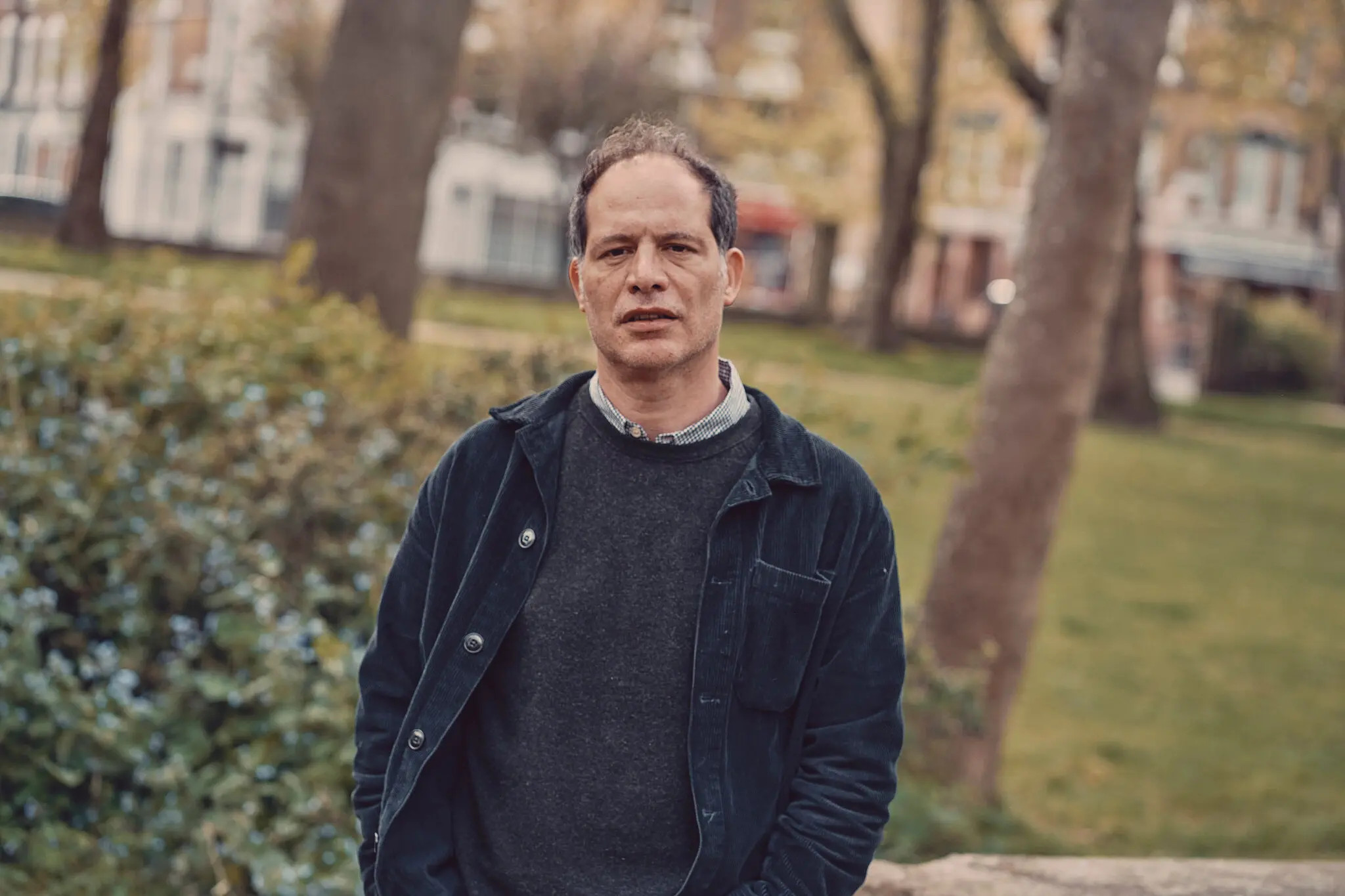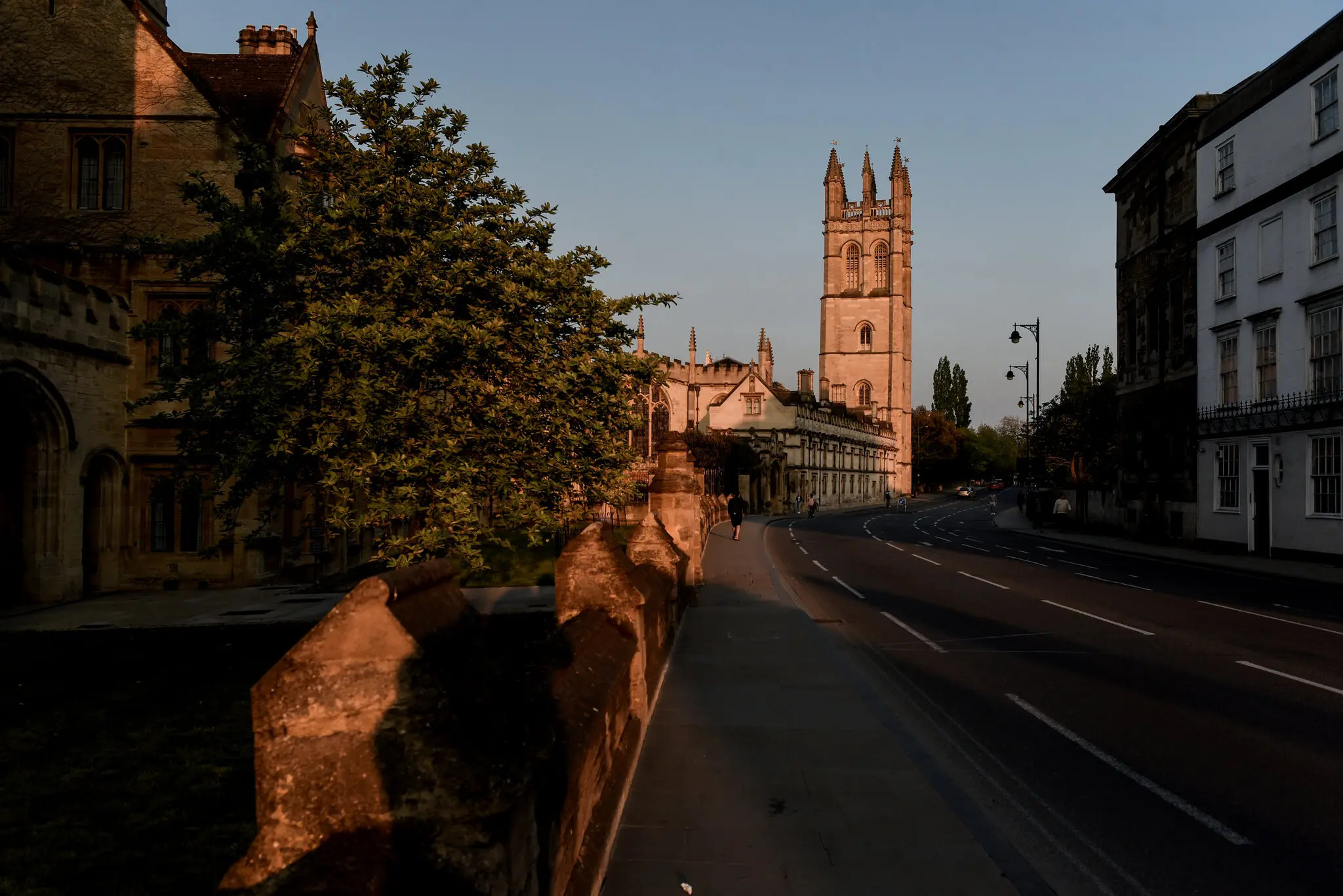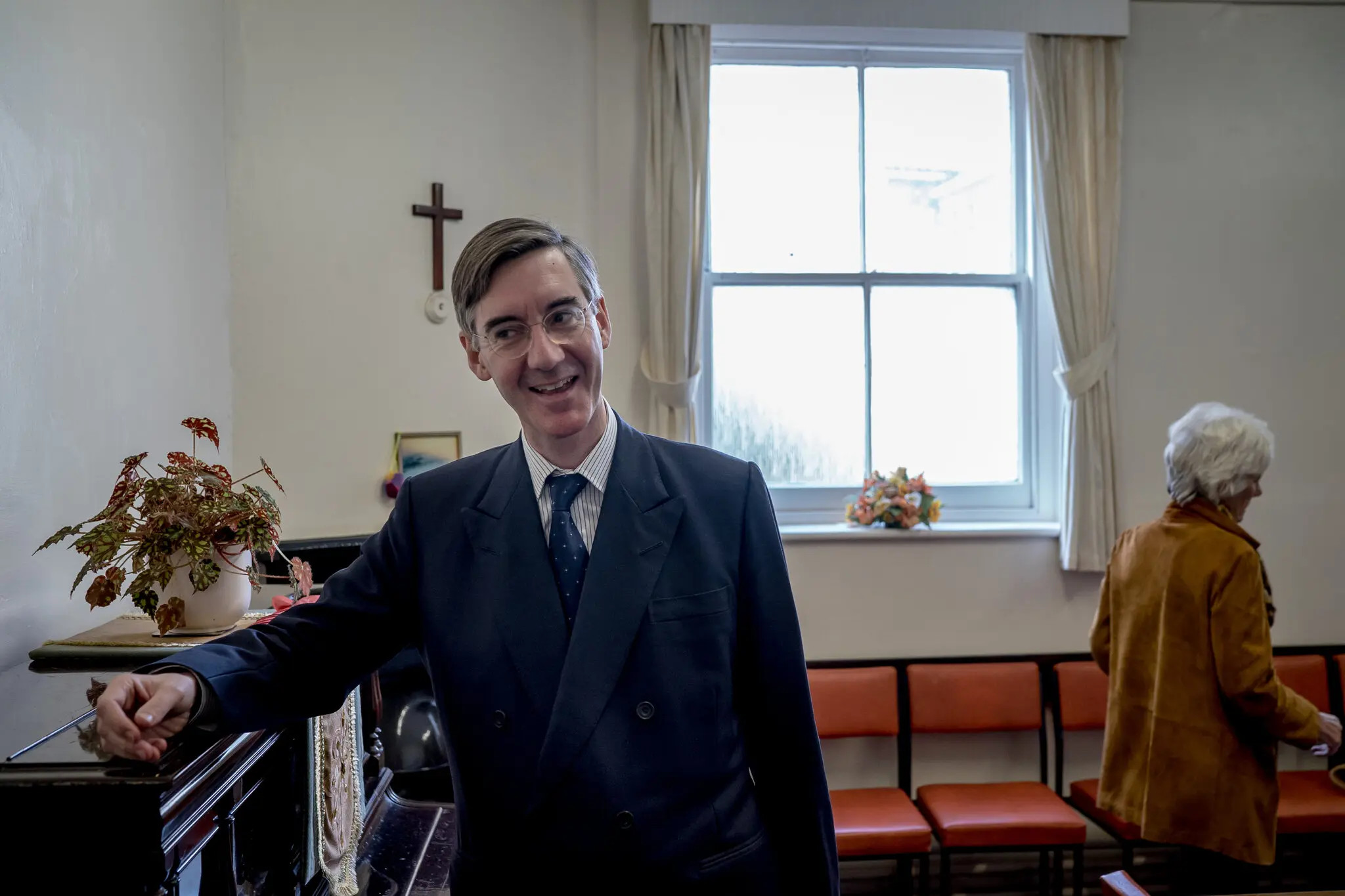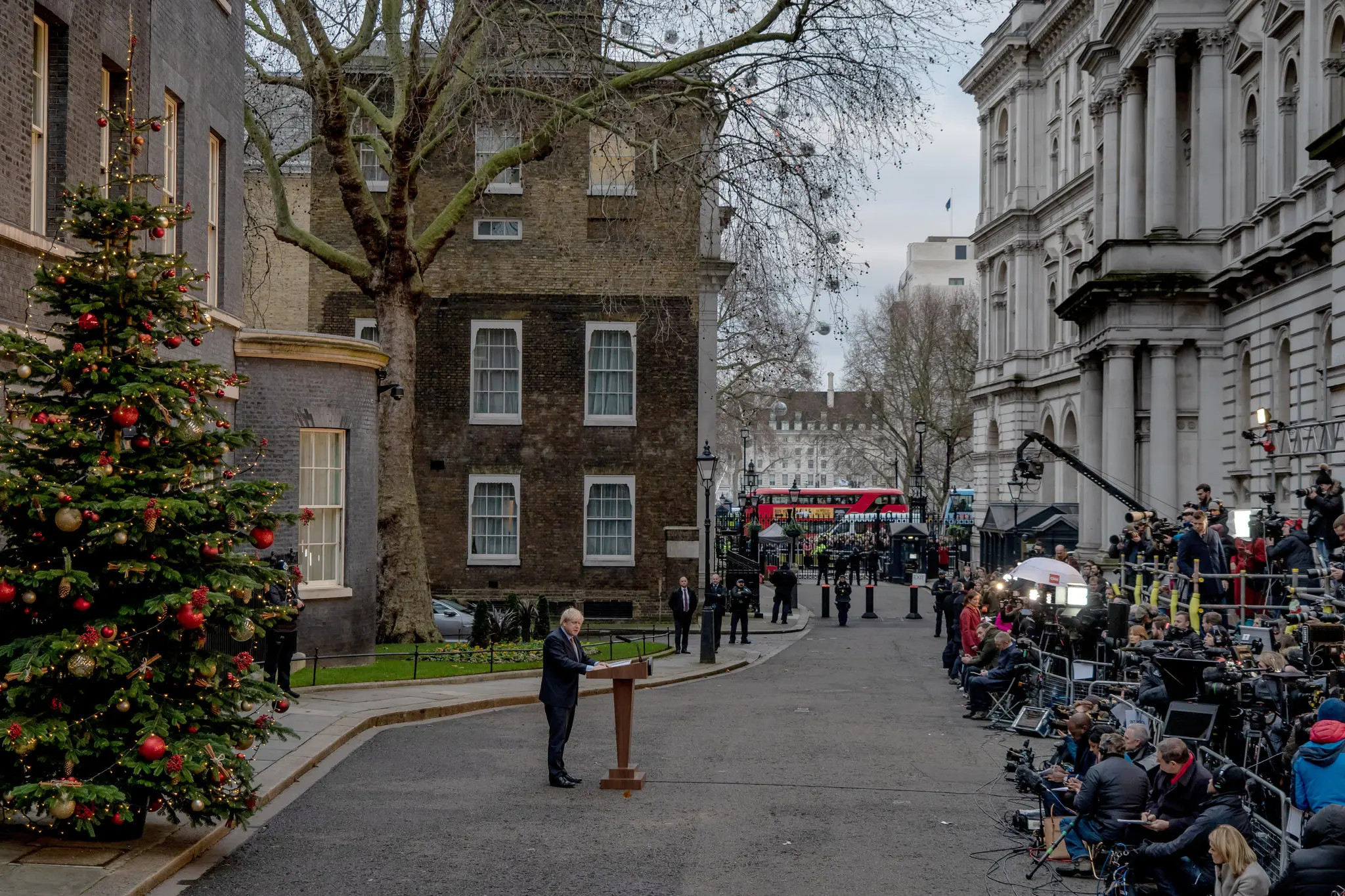
Date: 2024-10-19 Page is: DBtxt003.php txt00022343
THE RULING ELITE
THE OXFORT CHUMS
An Outsider Takes an Inside Look at the Oxford ‘Chums’ Who Run the U.K.
THE OXFORT CHUMS
An Outsider Takes an Inside Look at the Oxford ‘Chums’ Who Run the U.K.

Author and columnist Simon Kuper, in Highbury, London, in April
Photo Credit...Tom Jamieson for The New York Times
Original article: https://www.nytimes.com/2022/05/14/books/simon-kuper-book-oxford.html
Burgess COMMENTARY
I went to Cambridge in 1958 when I was 18 years old. My 'book' learning was pretty good, but my social understanding was very limited. I had a protected childhood with almost no limits to what I was encouraged to do. My parents knew what they were doing. Both had training as educators and took the process of learning very seriously. At 13 I went away to a boarding school ... Blundell's, founded in 1604 in Tiverton, Devon, by a wealthy textile merchant who also was a beneficiary to Balliol College, Oxford and Sidney Sussex, Cambridge. In my year at Blundell's, there were more students that got into Oxford and Cambridge than at any time before that. I am not sure why that was, because in some ways it was more difficult than usual because it was the year that National Service in the military ended so there were both 18 year olds and 20 year olds (post military service) both heading to university.
I went to Sidney Sussex College. I had a Blundell Exhibition worth £50 a year and a State Scholarship and my parents pitched in a bit ... but I was not one of the 'rich kids' who had unlimted cash for socializing ... rather I was in the middle of the 'middle class' as it was at that time in the UK.
Sidney was a small college ... one of the new colleges established in 1597 on land that was previously owned by Trinity College, part of which had been a cemetary. One of our more famous alums was Oliver Cromwell, and I lived for a year on the same 'staircase' where he had lived during his short time at Cambridge.
The transition from Blundell's school to Sidney Sussex College and Cambridge University was brutal. At school it had been relatively easy to be at the 'top of the class', but in the Cambridge setting it was hard to get to the middle. This applied not only in the academic space but also in the social and athletic space as well. And, of course, this was aggravated by the age differences between the 18 year old intake and the 20 year old intake.
Blundell's helped ... but only a bit. It was a fairly old and reputable public school (this is what a private boarding school in the UK is called) but it was not Eton or Harrow or even Winchester. There was clearly a group of students ... quite small ... that were very comfortable with the idea that they were at the top of society, the economy and really everything. They had a level of confidence that was completely out of wack with their actual competence ... whether that was academic, or athletic or really anything.
Most students changed a whole lot during their time at university, including some of those that started out believing they owned the world. A few didn't change. This article about the Oxford 'Chums' resonates, because there was some of this in my own experience.
Peter Burgess
Simon Kuper has written a book that captures Boris Johnson and other future Conservative politicians when they were ambitious and misbehaving undergrads, planning their rise to power.
By David Segal
May 14, 2022, 5:00 a.m. ET
LONDON — Soon after Simon Kuper began his first year of studies at Oxford University in 1988 he noticed an undergraduate who was always carrying an umbrella, wearing a dark double-breasted suit and old-school spectacles.
“He looked like a Victorian vicar,” Kuper recalled recently, drinking tea at a restaurant in the London neighborhood of Islington. “We made fun of him in the paper” — that would be Cherwell, Oxford’s student-run weekly, where Kuper was a reporter — “all the while not realizing that we were helping to build his brand.”
The man, and the brand, was Jacob Rees-Mogg, whose starchy, patrician style didn’t change as he rose through the Conservative Party ranks and who now serves in the cabinet of Prime Minister Boris Johnson as Minister of State for Brexit Opportunities and Government Efficiency. He was just one member of a tribe of young men — others included Mr. Johnson; another future prime minister, David Cameron; a cabinet member, Michael Gove; and a former adviser to Mr. Johnson, Dominic Cummings — who coalesced at Oxford in the mid and late 1980s and would go on to run the country.
Kuper chronicles their habits, foibles and occasionally noxious behavior in “Chums: How a Tiny Caste of Oxford Tories Took Over the U.K.,” published in April. The book profiles a group of future leaders at a moment when few outside elite circles knew their names, and it taxonomizes Oxford the way a nature documentary might explain predators and prey on the Serengeti Plain.
Kuper, a 52-year-old columnist for the Financial Times, came to this zoo as an outsider. He was raised in South Africa and spent the years between six and 16 in the Netherlands. His father was an anthropologist and his mother edited academic books, and dinner-table debate while growing up prepared him for mealtime combat at the university.

Kuper’s book chronicles the habits, foibles and occasionally noxious behavior of some of Britain’s future leaders during their time at Oxford University.
Photo Credit ... Mary Turner for The New York Times
It’s one reason he never suffered from “impostor syndrome,” or the sense, which he says was widespread among his Oxford peers, that his admission was some kind of clerical error. His stint at a public school in London during the equivalent of his junior and senior years had failed to instill in him the neuroses that he found rampant at the university.
“When I arrived at Oxford I saw that people were obsessed with class,” he said. “Friends of mine were crippled by anxiety over their accent, how they dressed, how they walked. Because I’d come from abroad, the class system didn’t bother me.”
Kuper’s own accent, which sounds conventionally English to these American ears, made him seem different to most people he met. As he explained it, he comes across as posh to working- and middle-class people and decidedly un-posh to the wealthy. To the latter, he would be classified at Oxford as a “stain,” which is to say a former pupil of a public school, a rung on the social ladder below a “tug,” the term for a graduate of one of the “lesser” private schools.
In hindsight, even Johnson described himself and his peers as somewhat odious.
The prep school with the most cachet was Eton, founded in 1440, which bestowed diplomas on key figures in “Chums.” Kuper classifies them as “toffs,” a term they occasionally use to describe themselves and one that suggests aristocratic types who are insulated, smug and snobby.
“What a sharp-elbowed, thrusting and basically repellent lot we were,” he wrote in his 2006 collection of essays, “Have I Got Views for You.”

“He looked like a Victorian vicar,” Kuper said of Jacob Rees-Mogg, pictured here at a Methodist church in Radstock, England, in 2017.
Photo Credit...Andrew Testa for The New York Times es
Kuper made friends, played cricket, fell in love and ate as well as he could at a university that put little premium on cuisine. He didn’t overlap with Johnson, who graduated with a degree in classics in 1987. Much of “Chums” is reportage based on interviews with the main characters as well as observations of contemporaries and knowledge of Oxford acquired while attending classes. Kuper was only vaguely aware of these panjandrums-in-training and never imagined that they would acquire national significance.
“They seemed too absurd,” he says. “For the book, I spoke to a friend I worked with at Cherwell who said ‘I thought they were from the past and that modernity would wipe out these ridiculous Etonians, with their white ties and their speeches.’ It didn’t occur to me that they had identified the route to power.”
Part of it was simply getting to Oxford, which has produced 11 of the United Kingdom’s 15 prime ministers since World War II. The rest was joining the Oxford Union, a debating society founded in 1823. Housed in a large Gothic Revival building with a library, snooker room, bar and a debating chamber that seats 450 people, it has long served as a proving ground for the politically ambitious of every ideological stripe, a very public venue to demonstrate a gift for extemporaneous speaking and wit.
Kuper had never heard of the Union before enrolling. The toffs, on the other hand, had been dreaming of the chamber since adolescence, he said, and trained to strut before its packed wooden pews in places like Eton’s Political Society, essentially the Union’s feeder team.
The Union’s most coveted bauble was the title of president, and previous holders of that office included the prime ministers William Gladstone, Edward Heath and H.H. Asquith. Johnson’s father, Stanley, had tried and failed to attain this prize in the late 1950s and it was inevitable that his son would make a similar effort, given his outsized aspirations.
Boris Johnson is the most compelling personality in “Chums.” The shambolic style, the self-deprecating humor, the gift for zingers — it was all there in university, as was the elitist’s ambivalent approach to achievement. The goal was to strive without seeming to exert effort, which was considered a bit vulgar. “Effortless superiority” was then Oxford’s well-known, unofficial motto.

British Prime Minister Boris Johnson speaking outside 10 Downing Street in London following his Conservative Party’s general election victory in 2019.
Photo Credit...Andrew Testa for The New York Times
So his first campaign for the top job at Union, as described by Kuper, was a conspicuously low-energy affair. His rival was a public-school graduate named Neil Sherlock, who recalls that Johnson didn’t bother to campaign and never so much as hinted at his plans, were he to prevail. (Sherlock had promised to revive the Union by recruiting more members.) To Kuper, Sherlock described the campaign as “meritocrat versus toff.”
As Sherlock said of Johnson in a recent video interview, “It was easy to paint him as a very establishment and ring-wing person who expected to win and who had no sense of what was needed to run an organization.”
Sherlock garnered a clear majority of some 1,200 votes, and went on to become a lobbyist for KPMG and PwC. Johnson took stock of the setback, and won the presidency the following year.
Kuper argues in “Chums” that, had this cadre been rejected by Oxford, Brexit never would have happened. One of its original proponents was a student, and future member of Parliament, Daniel Hannan, who created the Oxford Campaign for an Independent Britain at an Oxford coffee shop in 1990, when Euroskepticism was highly unfashionable — except among the chums.
“They’re going to run the country and they don’t want people in Brussels in charge,” says Kuper. “Their whole destiny is to go to Westminster and they have in mind a great country, like the one their fathers and grandfathers ran. Most Britons don’t care about the E.U. But if you think you’re going to run the country, it matters.”
Kuper also has an Oxford-rooted explanation for “partygate,” the catchall term for illegal festivities at No. 10 Downing Street, which Johnson attended, breaking laws about socializing that his own government had passed at the height of the pandemic.
In Kuper’s telling, indifference to law was — and remains — a prominent feature of the all-male Bullingdon Club, a raucous group of wealthy undergrads who gather occasionally to eat, drink and break things at a restaurant of their choosing. Cameron and Johnson, both Bullingdon members, attended a 1987 dinner at which someone tossed a potted plant through a restaurant window.

Brexit supporters celebrated as the U.K. prepared to leave the E.U. on January 31, 2020, in London. Kuper argued that if Britian’s Conservative leaders had been rejected by Oxford, Brexit would not have happened.
Photo Credit...Mary Turner for The New York Times
“The message of the Bullingdon,” Kuper says, “is ‘we make the rules, we can do whatever we want.’”
Kuper graduated in 1992 with a degree in history and German, and his future remained on a similar track as the chums when he and others went into what he calls “the rhetoric industries.” With its tradition of narrowly focused curriculums, Oxford had taught them how to read, write, and jabber ironically, but little about science, finance or much beyond their major.
Many became journalists, a go-to career for literate generalists with the right credentials. Soon after graduating, Kuper wrote “Soccer Against the Enemy,” a book about the game’s impact on politics, for which he traveled to 22 different countries. The game held little interest for the toffs.
“It was scorned, if they thought of it at all,” he said.
He started at the Financial Times in 1995 and spent years writing a sports column. One unstated qualification for the job?
“You needed a degree from Oxford or Cambridge,” he said. “At the time, it was basically a requirement.”
David Segal is a Business section reporter based in London. @DSegalNYTimes
--------------------------------------------------------
- British Politics Gives a Sense of Government by Old School Chums July 7, 2016
- Boris Johnson and the Rise of Silly Style July 23, 2019
- Blind Student’s Violent Treatment at Oxford Debate Prompts Resignations Nov. 19, 2019
- Slavery Ties: Harvard released a 134-page report on the universty’s four centuries of ties to slavery, in an effort to begin redressing the wrongs of the past.
- Admissions: The Supreme Court will decide whether two race-conscious admissions programs are lawful, raising serious doubts about the future of affirmative action.
- Hiring: Outrage ensued after U.C.L.A. posted an adjunct position that offered no pay. Turns out, the school is not unique.
- Tuition: After a plan for free community college failed to gain traction in Congress, New Mexico is taking the lead in the tuition-free movement.